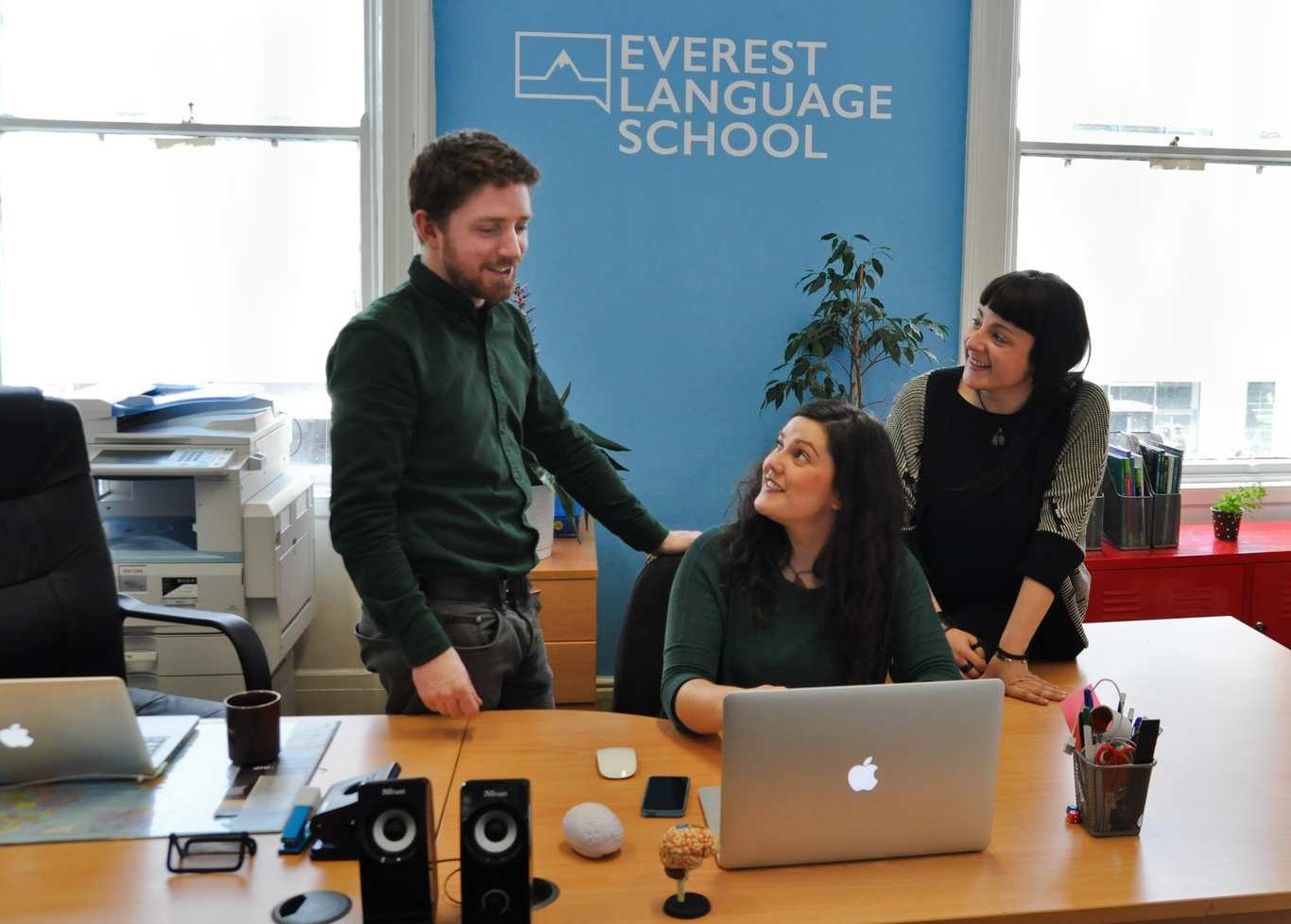'We could've read all the books in the world, but they wouldn’t prepare us for our first year'
Building a business with no experience is tough – it helps to know your industry backwards.
A SPANISH JOURNALISM graduate, a neuroscientist and an ethnomusicologist might seem an unlikely trio to go into business together.
But despite our differing backgrounds, our shared love of teaching was enough for us to commit to building our own English language school. After years of doing it for other people we decided it was time to stick our necks out and do it for ourselves.
None of us had a background in business, but we did know how to run a school. After a year I think we can safely say that understanding the business you are going into is as important as, if not more important than, understanding ‘business’.
We went into this with nothing but a four-week, ‘start your own business’ course under our belts and – as we were promised by our Local Enterprise Office mentor – we have probably learnt more this year than we would have ever done in an MBA.
Making ourselves visible
While we knew how to teach classes and operate a school, we had no idea of how to get the first students in the door. From the beginning, we were forced to get creative with an extremely limited budget.
Before we opened the doors we ran a competition on Facebook, where contestants were represented in a rubber duck race carried out in the Wicklow Mountains. While this got us our initial followers on Facebook, it still didn’t put us in touch with our students.

Our next attempt was a busking-style English class. We went out to Temple Bar with a whiteboard and markers, and started teaching any potential students that crossed our path. This might have got us one student in the door and a little publicity but nothing more.
The first real break came through Meetup. We started organising free language-learning meetups both inside and outside the school, and through these we were able to build up a following, a mailing list and get our first students registered.
Learning to be our customers
Getting the first students in was one thing, but maintaining a steady stream was a completely different thing. Being teachers we would hope that we know something about the learning process, so in order to learn how to grow the business we took a page out of our own book and went for the full-immersion approach.
We signed up to newsletters, followed blogs, subscribed to podcasts and basically found any source from which we could learn about sales, marketing and business.
Having an in-depth knowledge of not only our business but also our potential students made it somewhat easier to develop a marketing strategy. We had spent years in the classroom with students and working in student-support roles and were all too aware of the challenges and pain points they faced.
 Language 'busking' in Temple Bar
Language 'busking' in Temple Bar
Be authentic
Over the year, we learned that for marketing and communication in general it is so important to know who you are talking to and to speak in an authentic and consistent style. People are completely jaded with the standard ‘like and share’-type competitions – believe us, we tried. They don’t want to see posts full of buzzwords and stock photos.
While it is no doubt different for every type of business, what has really worked best for us is using social media as it is used by individuals. Posting a selfie or sharing an important moment is far more engaging than the type of post you spend hours crafting.
As a small team, we try to carry this authenticity through all aspects of our communication, from the way we write emails right through to the way we treat students when they arrive on their first day.
Mistakes will be made
Even if we feel we know our students’ wants and needs, we never stop asking them. Being small gives us the flexibility to really take on feedback and use it to reshape the way the business is run.
We always tell our students that they can’t learn by just reading from a book, they need to put what they learn into practice. Starting a business isn’t too different; we could have read all the books in the world, but they couldn’t have prepared us for the challenges we have had in our first year.
What holds a lot of people back from learning a new language is the fear of making mistakes. We have managed to get over this fear, and as long as we get it right most of the time and are prepared to learn from our own mistakes our business will continue to progress.
Rob McComish is the co-founder of Everest Language School.
If you want to share your opinion, advice or story, email opinion@fora.ie.






